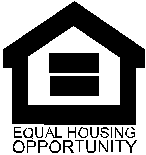Cash flow is one of the benefits of real estate investing. For the real estate investor cash flow is defined as the money left after collecting rent, paying the monthly expenses, and paying any mortgage payments.
Positive cash flow means that you collected more rent than you spent on expenses.
Negative cash flow is the result of having greater expenses than income on a property. This can occur when a property has high vacancy or the property may have too much debt.
Don’t Bet Against Cash Flow
During the bubble days of real estate, many investors were buying properties on the hopes that values would increase. The trend of property values to increase is called appreciation or a property is said to appreciate over time. These investors speculators didn’t care if the property cost money each month. They were gambling that the property’s appreciation would more than make up for any negative cash flow.
When the bubble burst, these property owners were stuck with a property that was losing value and costing them money to keep each month. Many of these speculators ended up losing the property through foreclosure or sold the property via a shortsale. The negative cash flow and loss of value provided no reason for hanging onto the investment.
When Property Value Matters
Your property’s value only really matters at three points in time. The first point property value matters is when you buy the property. Nobody wants to overpay for an investment if they don’t have to.
The second point in time that property value matters is when you need to refinance. Lenders use the property’s value as a measure of the level of debt they are comfortable providing. They will usually use an appraisal to gauge the value of your property.
The third point in time that property value matters is when you sell. It matters a great deal how much cash an investor will put in their pocket after selling a property.
Cash Flow Mitigates a Decrease in Value
Buying an investment property with positive cash flow from day one, can overcome short term losses in value. An investor that buys a property with a cash-on-cash return of 6% from Day One, will still be getting a 6% return on investment if the value goes down. Positive cash flow still provides the investor with a return and a reason to stay invested in the property.
A property with positive cash flow provides a return to the owner regardless of the market value. Provided an investor is not near point two or point three above, the value of the property is really only a matter of pride, a measure of net worth to the cash flow investor and not a cause to give up on their investment.
Real Estate or the Bank?
What is your investment earning in the current environment? As I write this in June of 2012 most banks are paying less than 0.2% on their deposits. CD’s with a 1 year maturity are paying investors 0.5%.
With inflation ticking away at 2% per year these accounts are actually losing value each passing day. How long will it take for your wealth to erode?
If you would like to learn more about investing in real estate, call Peter Maclennan at (925) 385-8798. To learn more visit http://www.maclennaninvestments.com.

[…] A 1o31 exchange allows the investor to buy bigger or better property. An investor might decide to exchange into a property that is larger in price or they may decide to go into property that increases their cash flow. […]